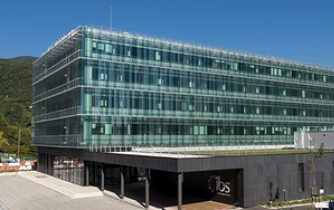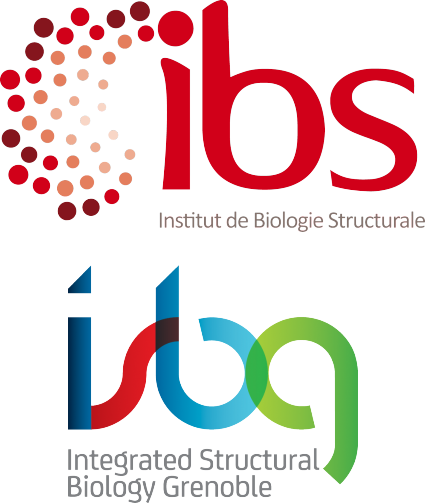

The platforms of the Institut de Biologie Structurale (IBS) managed by Integrated Structural Biology Grenoble (ISBG).
The Instruct Facility in Grenoble provides technician-supported user access to some of the highest level structural biology instrumentation in France. Our services/technologies address areas of sample preparation, characterisation and structural determination. All platforms have ISO 9001 quality certification. User access to the platforms of the Institut de Biologie Structurale (IBS) is managed by the Integrated Structural Biology Grenoble (ISBG) service unit.
The IBS is on the EPN Science Campus, an international science hub that also hosts three major European institutes – EMBL, ESRF and ILL, each with major research and user access programs in structural biology.
IBS-ISBG is currently available for limited remote access due to COVID-19 restrictions. For information on the availability of specific technologies, view the Technology Availability List or contact support@instruct-eric.org. Please check here regularly for updates.
How to find us
The IBS is located on EPN Science campus in the northern part of Grenoble. The site can be easily reached by car, bus or train thanks to the nearby motorway connections and railway station. Visitors to the EPN science campus must be registered for a visit prior to arrival. Please fill in this form and give it to your contact more than 48h in advance. You will need to produce proof of identification (e.g. passport, ID card) to be able to enter. The site entrance is located 71 avenue des Martyrs.
The EM platform at IBS-ISBG provides access via Instruct-ERIC to a full range of instruments (three TEMs and auxiliary equipment) to users located at any Instruct member state. This includes our flagship instrument: the Titan Krios G4 microscope CM02; part of the national infrastructure "France cryoEM."
Services include classical negative staining experiments (for quality control or morphological analysis), sample vitrification and sample optimisation for cryo-EM experiments, screening and data acquisition for single particle or tomography experiments.
The PF is also offering cellular EM services for sample preparation (at room or cryo temperatures), sectioning and imaging.
We are currently developing microED and we are interested in collaborations, but this not yet available as a service.
Titan Krios G4 (CM02), available for high-end data acquisition for single particle and tomography.
Talos Glacios, available for cryo-EM sample optimization, screening and for data collection in tomography and single-particle experiments.
Tecnai T12, used for negative staining and cellular electron microscopy.
Tecnai F20, equipped for cryo-EM/ET and microED.
Three Vitrobot MARK IV (including one installed in an anaerobic glove box) and a Leica GP2 for specimen vitrification.
Equipment for freeze substitution (AFS2), a High-Pressure Freezer (Leica EM-ICE) and (cryo-)microtomes (Leica UC7-FC7) for cellular EM.
For any enquires, please contact the EM facility: ibs-plateforme-em.contact@ibs.fr
View All Electron Microscopy at Instruct
The Cellular Imaging platform allows the access to a confocal microscope (spinning disk S-M4D), a video-microscope (V-M4D), a super-resolution microscope (SMLM SR-M4D) and a flow-cytometer (VYB). The instruments are optimised to study living cells, and fluorescent protein expression. Details are available on the ISBG website.
Expression of Soluble Proteins by Random Incremental Truncation (ESPRIT) is a directed evolution-type process combining random deletion mutagenesis with high throughput solubility screening.
The Biophysics platform at Integrated Structural Biology Grenoble (ISBG) and Institut de Biologie Structurale (IBS), Grenoble offers one of the largest ensemble of state-of-the-art technic & methods for in vitro characterising the intrinsic properties of biological macromolecules in solution, biomolecular interactions and their assemblages.
The mass spectrometry (MS) platform can be used for the analysis and characterisation of proteins and offers the following analytical techniques: determination of exact mass at high resolution for intact proteins and peptides, control of protein and peptide expression, modification, mutation and labelling , analyses of protein limited proteolysis, and analysis of macromolecular complexes by native MS.
The Cell Free expression platform of IBS is devoted to large scale production (milligrams quantities) of soluble proteins, membrane proteins and RNAs for structural studies (X-ray, NMR, EM,...). The platform benefits from scientific input of the Membrane Transporters and Membrane and Immunity teams for expression and solubilisation of membrane proteins and from the Biomolecular NMR group for isotopic labelling of proteins and RNA. The Cell Free platform has implemented a quality management process for ISO 9001: 2015 certification, a key label and a warranty for all users of well-managed activities.
Solid state nuclear magnetic resonance equipment available through Instruct at Grenoble include a 950 MHz and several 600 MHz instruments, equipped with state-of-the-art magic-angle spinning (MAS) capabilities, and triple-resonance probes for different rotor sizes and spinning speeds.
Researchers can gain access to 950, 850, 700, and several 600 MHz instruments, equipped with most recent Bruker electronics (Avance III HD) and cryogenically cooled probes for high-sensitivity solution-state NMR applications. Standard Bruker experiment libraries, as well as additional in-house libraries for optimised fast NMR data acquisition (e.g. SOFAST, BEST, and HADAMAC-type experiments) are available. Fast-mixing equipments required for real-time studies of kinetic processes such as protein folding are also available.

